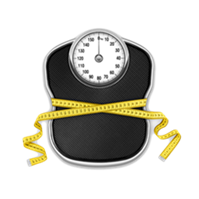Sleep apnea is a sleep disorder characterized by pauses in breathing or shallow breathing during sleep. Weight loss can be an effective treatment for sleep apnea in some cases, as excess weight can contribute to the development of the disorder.
- Obesity and Sleep Apnea: Obesity is a significant risk factor for the development of sleep apnea. Excess weight, particularly around the neck, can cause the airway to become narrowed, making it more difficult to breathe. By losing weight, particularly around the neck, the airway can open up, reducing the severity of sleep apnea.
- Weight Loss and CPAP: Continuous Positive Airway Pressure (CPAP) is a common treatment for sleep apnea. However, some people find it difficult to use CPAP therapy due to the pressure required to keep the airway open. For such individuals, weight loss can lead to a reduction in the severity of sleep apnea, making it easier for them to use CPAP therapy.
- Lifestyle Changes: Making lifestyle changes, such as eating a healthy diet, getting regular exercise, and reducing stress can also help in weight loss and thus can lead to a reduction in the severity of sleep apnea.
- Consult with a Professional: It’s essential to consult with a sleep specialist or a doctor if you suspect you have sleep apnea. They can evaluate your overall health and recommend appropriate treatment options, including weight loss, lifestyle changes, and CPAP therapy.
- Weight Loss Surgery: In some severe cases of obesity-related sleep apnea, weight loss surgery such as gastric bypass, sleeve gastrectomy or gastric banding may be considered as an option. These procedures can result in significant and sustained weight loss and can lead to improvement in sleep apnea symptoms.
It’s worth noting that not all cases of sleep apnea are caused by excess weight, and weight loss may not be effective in all cases. However, if you have sleep apnea and are overweight, losing weight can be an effective treatment option.
In summary, weight loss can be an effective treatment for sleep apnea in some cases, as excess weight can contribute to the development of the disorder. By losing weight, particularly around the neck, the airway can open up, reducing the severity of sleep apnea. It’s important to consult with a sleep specialist or a doctor if you suspect you have sleep apnea and to work with a healthcare professional to develop a personalized weight loss plan that is safe and effective for you.







